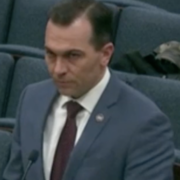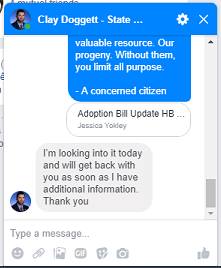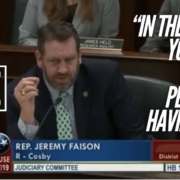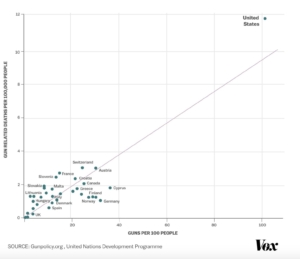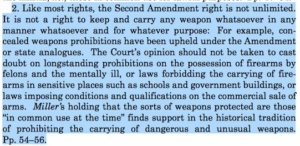Andy Spears owns the public policy consulting firm Spears Strategy which provides policy and advocacy consulting to school systems, non-profits, and parent groups. Spears holds a Ph.D. in Public Administration with an emphasis in education policy. Over the past 15 years, he has worked in public policy roles in state and local government in Kentucky and Tennessee. Follow @TheAndySpears for his take on politics and policy and subscribe to the TN ED REPORT HERE.
In an absolutely epic Twitter thread yesterday, Williamson County School Board member Eric Welch makes a case for vouchers.
Actually, he makes a case for voucher-level funding for public schools. Welch uses math to make his case.
Here are some examples:
Welch notes the significant funding gap between vouchers and the dollar amount per student Williamson County receives from the state based on the BEP formula. This is an important distinction.
Factors involved in generating the total number are based on a school system’s average daily attendance. That number then generates a number of teachers, administrators, and other positions.
The state funds each system’s BEP teacher number at 70% — that is, the state sends 70% of the average weighted salary (around $45,000 currently) to the district for each teaching position generated by the BEP.
Let’s be clear: The BEP is inadequate. Every single district hires more teachers (and other positions) than generated by the BEP. Local districts fund 100% of those costs.
Before the state was taken to court over inadequate funding, the BEP Review Committee used to list a series of recommendations on ways to improve the funding formula to adequately meet the needs of our state’s public schools.
While routinely ignored by policymakers, this list provided a guide to where Tennessee should be investing money to improve the overall public education offered in our state.
Here are some examples from the most recent version of this list:
Fund ELL Teachers 1:20 — COST: $28,709,000
Fund ELL Translators 1:200 COST: $2,866,000
Instructional Component at funded at 75% by State COST: $153,448,000
Insurance at 50% COST: $26,110,000
BEP 2.0 Fully Implemented COST: $133,910,000
Some notes here –
First, BEP 2.0 was frozen by Governor Haslam as he “re-worked” funding distribution and supposedly focused on teacher pay.
Next, the state currently provides districts 45% of employee health insurance for ONLY the BEP -generated positions. Districts must fund 100% of the benefit cost for teachers hired about the BEP number.
Finally, beefing up the instructional component by 5% as recommended here would mean significant new dollars available for either hiring teachers or boosting teacher pay or both.
Here are some “wish list” items on teacher pay, which reflect that our state has long known we’re not paying our teachers well:
BEP Salary at $45,447 COST: $266,165,000
BEP Salary at $50,447 COST: $532,324,000
BEP Salary at Southeastern average $50,359 COST: $527,646,000
BEP Salary at State average (FY14) $50,116 COST: $514,703,000
These are FY14 numbers — so, that’s been a few years. Still, funding teacher pay at the actual average spent by districts (just over $50,000 a year) would mean significant new funding for schools that could be invested in teacher salaries. We don’t fund teacher pay at the actual average, though, we fund it at a “weighted” average that is thousands less than this actual number. Then, districts receive only 70% of that weighted number per BEP position.
Making the large scale jump necessary to truly help direct state BEP dollars into teacher paychecks and provide a much-needed boost to salaries would cost close to $500 million. Bill Lee’s budget this year provides a paltry $71 million, continuing the tradition of talking a good game while letting teacher pay in our state continue to stagnate.
Here are some other recommendations — ideas that Welch suggests districts could pursue if only they were funded at the same level Bill Lee is proposing for private schools:
Change funding ratio for psychologists from 1:2,500 to 1:500 $57,518,000
Change funding ratio for elementary counselors from 1:500 to 1:250 $39,409,000
Change funding ratio for secondary counselors from 1:350 to 1:250 $18,079,000
Change funding ratio for all counselors to 1:250 $57,497,000
Change Assistant Principal ratio to SACS standard $11,739,000
Change 7-12 funding ratios, including CTE, by 3 students $87,928,000
New BEP Component for Mentors (1:12 new professional positions) $17,670,000
Professional Development (1% of instructional salaries) $25,576,000
Change funding ratios for nurses from 1:3,000 to 1:1,500 $12,194,000
Change funding ratios for Technology Coordinators from 1:6,400 to 1:3,200 $4,150,000
Increase Funding for teacher materials and supplies by $100 $6,336,000
Instructional Technology Coordinator (1 per LEA) $5,268,000
If you look at these numbers, you see that a state committee of professional educators (the BEP Review Committee) has been telling state policymakers that Tennessee needs to do more.
They’ve been saying it for years.
Now, we have a Governor who is suggesting that instead of spending state dollars to meet these needs, we’re going to spend them to prop up private schools with little to no accountability.
Holler at Governor Lee HERE. And for more on education politics and policy in Tennessee, follow @TNEdReport.
with ACTUAL/alleged GOP child sex abusers (Hastert, Moore, Gaetz, etc)— rips the “BAD FAITH” framing of Dems as “groomers” pic.twitter.com/6Dm7ssBPG1




